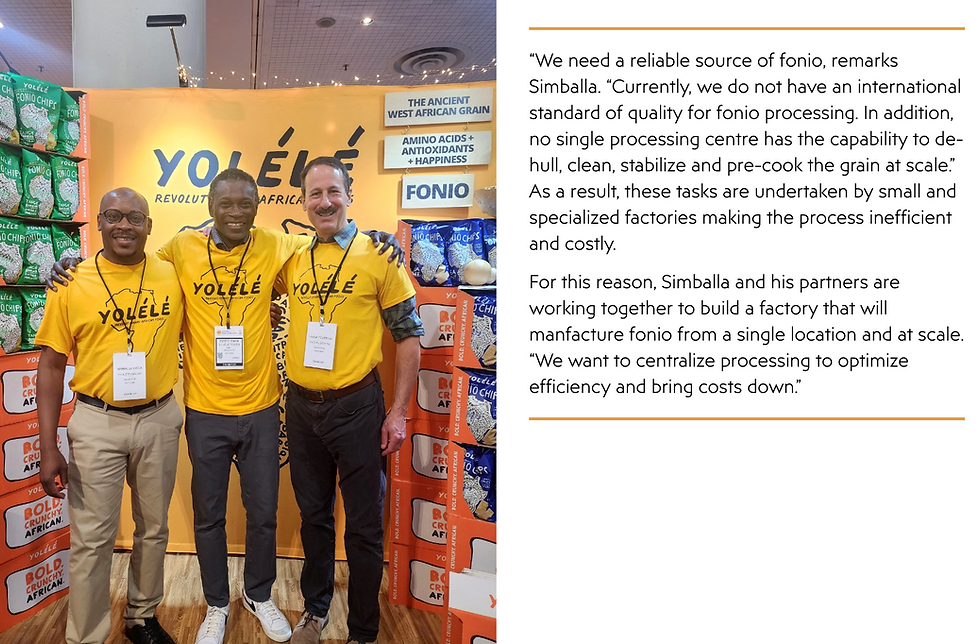Supporting sustainability and empowering enterprise
- Stacey Shackford
- Nov 30, 2023
- 2 min read

Economic growth and poverty reduction have often been pitted against environmental protection and climate action. Agriculture exemplifies this conflict, where increases in production yields have often been accompanied by environmental degradation due to deforestation and use of chemical fertilizers and pesticides.
In Sub-Saharan Africa, agriculture is key to social, economic and environmental well-being. The sector employs more than half of the population and accounts for over 20% of the GDP. Yet, these farmers suffer from production losses due to extreme weather events caused by rising temperatures.
A new approach is needed that can simultaneously support sustainability and empower enterprises. The private sector is a key partner to fostering sustainable economic growth in the food and agricultural sector.
Pledging to end hunger sustainably
The Zero Hunger Private Sector Pledge, launched during the United Nations Food System Summit in 2021, calls on the business community to help end hunger. To date, it has mobilized USD 575 million from 50 companies to reach the zero-hunger goal by 2030.
The Pledge offers a roadmap for companies to align their actions based on scientific evidence identifying the 10 intervention areas presenting the highest potential for reaching zero hunger goal by 2030. While focused on ending hunger, these intervention areas recognized the importance of doing so sustainably.
A recently published report verifying pledge implementation, the Pledge Accountability report, found that more than half of investments – 56% - are aligned with environmental sustainability goals and specifically support sustainable practices, the reduction in post-harvest losses and the adoption of climate-resilient crops.
A number of companies have undertaken sustainable business practices as part of their pledge implementation. For example, Arla Foods Ingredients has financed a project in Pakistan that utilizes side streams – or what is normally characterized as waste – to help local dairy producers develop new and innovative products that are affordable and nutritious based on whey. This project provides dairy farmers with a new revenue source while also reducing environmental waste and improving nutrition.
Similarly, Nyangorora Banana Processors in Kenya re-purposes banana waste to boost incomes, nourish communities, and cultivate sustainable livelihoods. Founded in 2013, it uses banana waste, such as stems, peels and leaves discarded during banana processing to make banana crisps, bread, cakes, juice, and flour.

Empowering entrepreneurs
Re-introducing the cultivation and use of indigenous crops offers opportunities to improve nutrition, promote climate-smart and resilient agricultural practices and offer new economic opportunities.
Dorah Momanyi is part of a new generation of young entrepreneurs, full of ideas and enthusiasm. She launched a start-up, iPoP Africa, that combines locally sourced, traditional grains with an advanced cereal processing technology to create a new snack.
Currently, very few farmers in Kenya grow indigenous crops due to the lack of market demand. However, Dorah believes that with climate change, farmers will become increasingly interested in climate resilient crops.

Fonio is another grain which is attracting attention for its ability to provide nutrition as well as withstand increasingly harsh climatic conditions. It is reputed for its ability to thrive in poor quality soil without needing much water or the addition of fertilzers.
Simballa Sylla is part of the global team bringing renewed attention to fonio. Working with the company Yolélé, he is building a supply chain in Africa so that fonio can become available worldwide. According to Simballa, fonio brings many benefits: economic opportunity for smallholder farmers, biodiversity, climate resiliency and nutrition.




